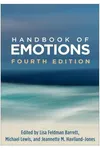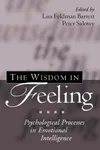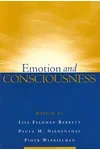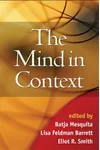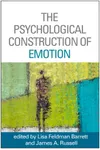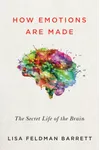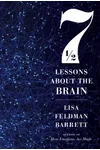Imagine a scientist who flipped everything you thought you knew about emotions upside down—meet Lisa Feldman Barrett! A trailblazing neuroscientist and psychologist, Barrett has reshaped our understanding of the human mind with her revolutionary theory of constructed emotions. As a University Distinguished Professor at Northeastern University, her work blends psychology, neuroscience, and a dash of curiosity to reveal how emotions aren’t hardwired but crafted by our brains.
From her groundbreaking books to her global influence, Barrett’s ideas have sparked conversations in courtrooms, classrooms, and even TED stages. Ready to dive into the mind of a thinker who’s been called the deepest since Darwin? Let’s explore her story!
The Making of Lisa Feldman Barrett
Born in 1963 in Toronto, Canada, to a working-class family, Lisa Feldman Barrett was the first in her extended family to attend university. She earned her psychology degree from the University of Toronto, followed by a PhD in clinical psychology from the University of Waterloo. A pivotal moment came during her graduate years when she failed eight times to replicate an experiment—only to realize she’d uncovered a new phenomenon about emotions. This sparked her lifelong passion for decoding the brain’s role in feelings. After a clinical internship, she transitioned from Penn State to Boston College, landing at Northeastern University in 2010, where she now leads the Interdisciplinary Affective Science Laboratory.
Lisa Feldman Barrett’s Game-Changing Works
Barrett’s books and research have redefined emotion science. Her seminal work, How Emotions Are Made: The Secret Life of the Brain (2017), challenges the idea that emotions are universal or triggered by specific brain circuits. Instead, she argues emotions are constructed from our experiences, culture, and context—like recipes baked from neural ingredients. Reviewers call it “mind-blowing” and a “paradigm shift” for its clear, vivid prose.
In Seven and a Half Lessons About the Brain (2020), Barrett offers bite-sized insights into how our brains predict, rather than react to, the world. It’s a fun, accessible read that busts neuroscience myths. She’s also co-edited the Handbook of Emotions, a go-to academic resource, and published over 275 peer-reviewed papers in top journals like Science and Nature Neuroscience. Her style? Rigorous yet relatable, blending data with storytelling to make complex ideas feel like a chat with a brilliant friend.
Barrett’s theory of constructed emotion, developed during her graduate years, emphasizes that emotions like anger or joy vary across cultures and moments. Her cross-cultural studies, including work with the Hadza in Tanzania, show how context shapes what we feel. It’s science that feels personal, inviting readers to rethink their own minds.
Why Lisa Feldman Barrett Matters
Barrett’s work has rippled far beyond academia. Her findings have influenced law enforcement by debunking myths about reading emotions from faces, impacting “emotion AI” and courtroom defenses like the “heat of passion.” She’s advised the FBI, testified before Congress, and appeared on shows like Through the Wormhole. Her ideas are reshaping psychology, medicine, and even parenting by highlighting how we can shape our emotional lives. As a mentor, she’s inspired countless students, many now professors at top universities. With over 106,000 citations, she’s among the top 0.1% of cited scientists, proving her ideas are a global game-changer.
About Lisa Feldman Barrett
- Born: 1963, Toronto, Canada
- Key Works: How Emotions Are Made (2017), Seven and a Half Lessons About the Brain (2020)
- Awards: Guggenheim Fellowship (2019), APA Distinguished Scientific Contribution Award (2021), APS William James Fellow Award (2025)
- Fun Fact: Her TED Talk on emotions has millions of views!
Want to unravel the secrets of your brain? Grab How Emotions Are Made and dive into Barrett’s fascinating world of emotion science!
